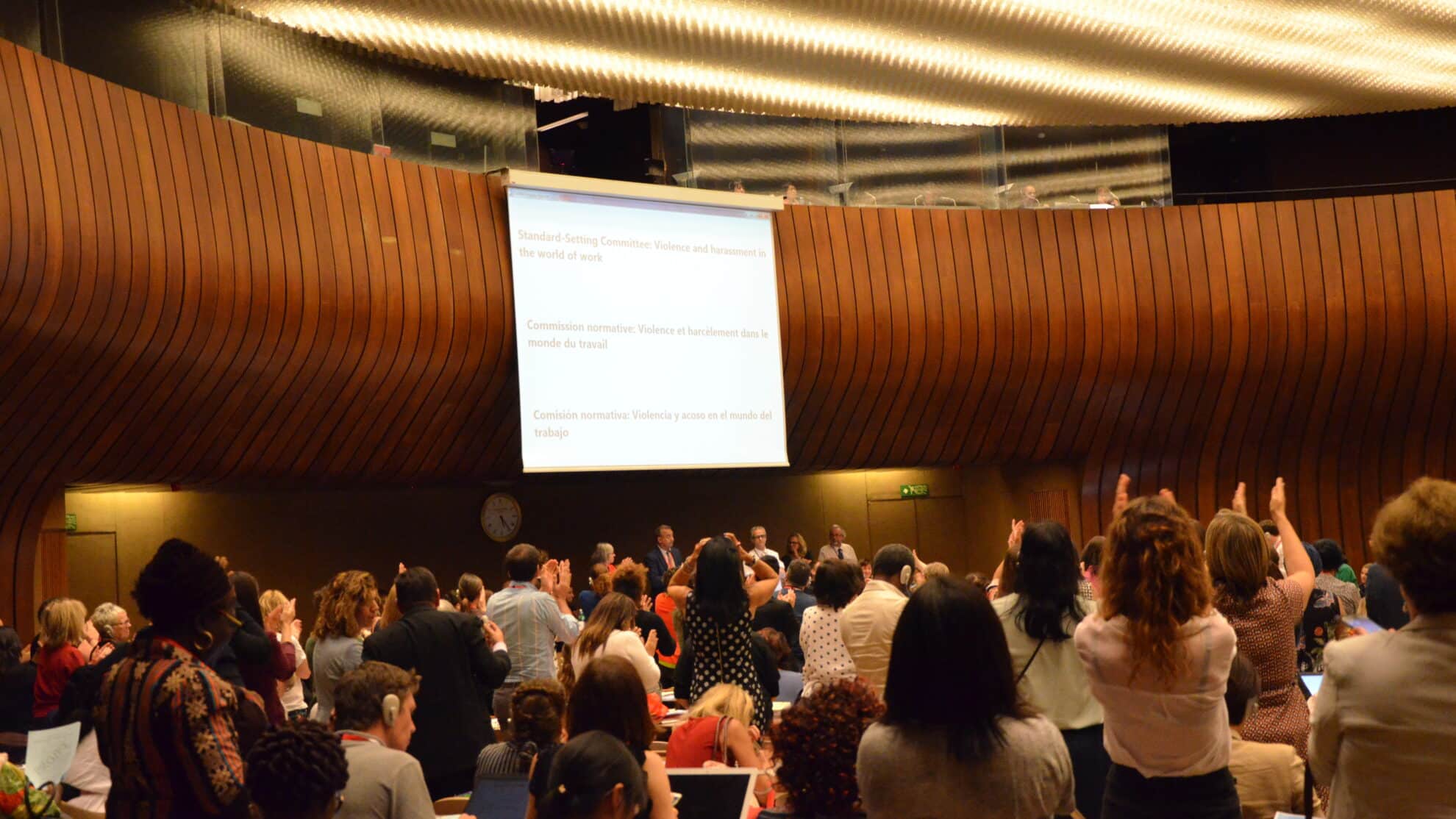The 113th Session of the International Labour Conference (ILC) is being held at the International Labour Organization (ILO) Headquarters in Geneva, Switzerland, in June 2025. Government, employer and worker delegates from 187 Member States gather every year in Geneva to develop international labour standards and set the broad policies of the ILO. The agenda for this year’s ILC includes, “possible new international standards on the protection of workers against biological hazards in the working environment, decent work in the platform economy and innovative approaches to promoting transitions from the informal to the formal economy”.
During the Conference, a delegation of worker leaders and representatives from the International Alliance of Waste Pickers, the International Domestic Workers Federation (IDWF), HomeNet International, StreetNet International, UTEP (Unión de Trabajadores y Trabajadoras de la Economía Popular) and WIEGO will participate in the Conference’s committee meetings to ensure that the perspectives, needs and experiences of workers in informal employment are reflected in the discussions, priorities and policies of the ILO.
Our Position on Formalization: Collective Action for Risk Reduction and Decent Work
The ILO Recommendation on the Transition from the Informal to the Formal Economy (No. 204) sets out key steps governments can take to prevent the informalization of formal employment and to support formalization processes for all workers – regardless of their status in employment. Any discussion of formalization must uphold the principles embodied in Recommendation 204 and include workers in informal employment, who make up 61% of the world’s workers.
- Reducing risks and realizing rights to support structural economic transformation: Formalization efforts for workers should focus on risk reduction through inclusive and appropriate public policies rather than productivity improvements. We strongly object to the ILO report’s categorization that the informal economy is a structural barrier to advancing social justice. Rather, the informal economy is the result of public policies that have failed to account for the reality of how work and economies operate in much of the world.
- Utilizing the ILO’s decent work agenda as a framework to guide formalization efforts:
- Job creation and enterprise development: Governments must play a key role in driving labour and social protection laws and policies that integrate workers in informal employment into the economy in an equitable manner. Meaningful steps to promote the formalization of these workers, particularly women, can be taken by promoting enabling conditions for cooperatives and other entities in the social and solidarity economy (SSE).
- Rights at work: The formalization of informal employment must be approached from a rights-based perspective. The strategy of promoting individual entrepreneurship as a formalization strategy is inadequate and does not lead to the realization of rights at work.
- Access to social protection is essential for all workers as it reduces vulnerability to shocks, while promoting well-being and economic stability. Social protection should be at the forefront of efforts to incentivize formalization for workers and ensure that it provides help rather than harm.
- Expand and institutionalize the right to freedom of association and collective bargaining for all workers – regardless of their employment relationship. Actions should include amending labour laws so they recognize and institutionalize the right of self-employed workers to freedom of association and collective bargaining, and strengthening social dialogue mechanisms so they address domestic workers’ decent work deficits and effectively guarantee their voice and representation.
Background Documents
Media Contacts
- Graciela Mora (onsite in Geneva): +506 8358 5592; graciela.mora@wiego.org (English, Spanish)
- Kendra Hughes (in Ottawa): +1613-807-2724; kendra.hughes@wiego.org (English, Spanish, French)
